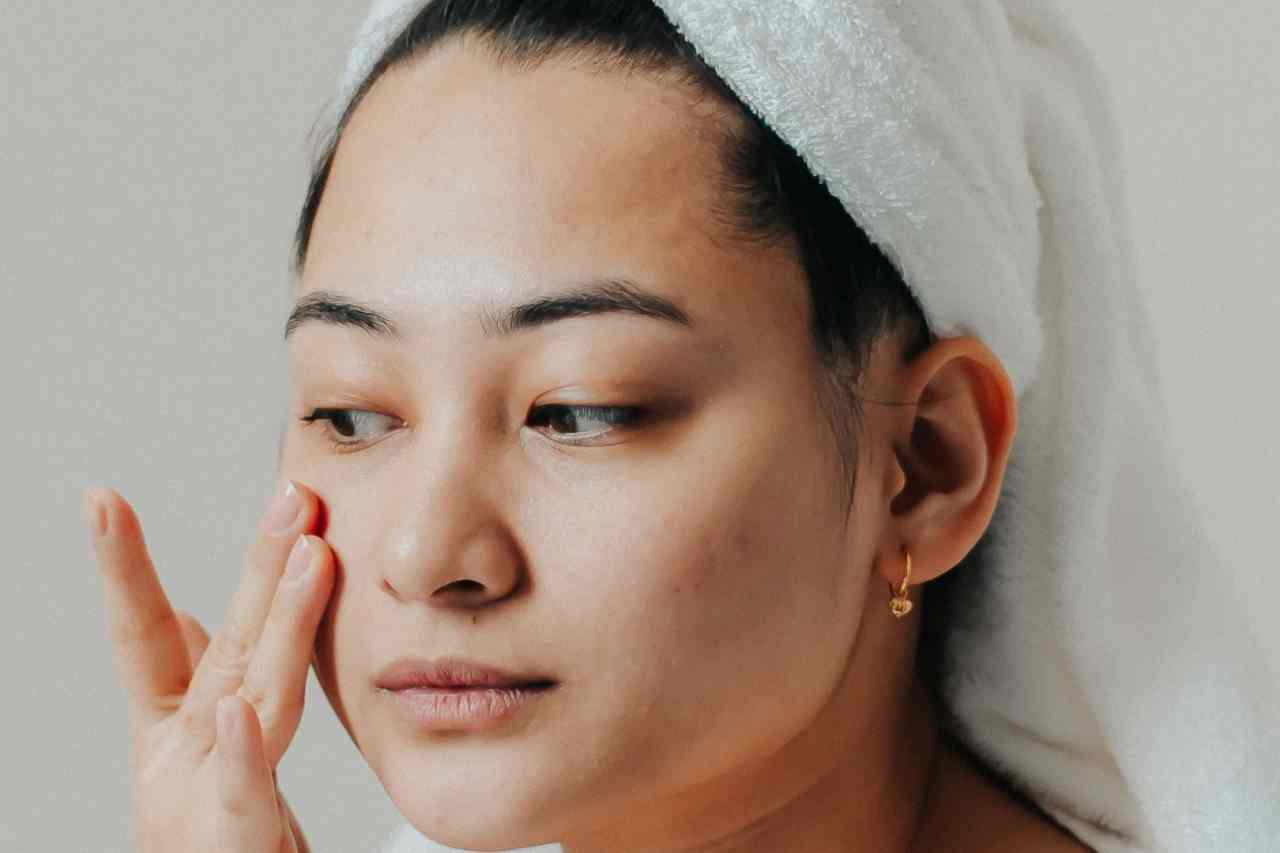Skin changes during pregnancy might have you thinking about stretch marks, but things go way beyond that. “The hormonal changes a woman goes through during the various stages of pregnancy may disrupt the skin’s delicate balance, resulting in anything from dehydration to breakouts and hyperpigmentation,” explains Dr Judey Pretorius, a biomedical scientist.
When pregnant, your existing skincare routine might not cut it anymore, since hormonal changes result in different skin concerns. But it’s not all bad. Here, all the ways your skin could change during pregnancy, and how to deal.
During pregnancy, you might have that pregnancy glow
“For most women, pregnancy brings on a radiant glow, especially during the first trimester,” says Dr Pretorius. “This is due to increased blood flow, fluctuating hormone levels and increased oil production. However, this glow sadly doesn’t always last, and as a woman’s pregnancy journey evolves, she may begin to experience less desirable skincare changes.” Sigh.
Acne during pregnancy
Suddenly getting pimples everywhere? Blame your preggie hormones. “Acne is extremely common among pregnant women, especially among those who have a history of acne,” says Dr Pretorius. “The change in hormones and increased oil production that is responsible for that pregnancy glow may lead to clogged pores and an increase in breakouts. This may range from occasional breakouts to severe acne.” Per experts, acne will fade once you give birth.
What to do: While salicylic acid and retinoids are great at treating acne, they’re off-limits while you’re pregnant, because of possible birth defects. Instead, opt for active ingredients like vitamin C, azelaic acid and diluted tea tree oil that can clear up imperfections – and they’re safe to use while you’re expecting.
Lelive All Glow’d Up Brightening Serum
This vitamin C serum is packed with the good stuff. Vitamin C and hyaluronic acid minimise fine lines and brighten your complexion.
R299 at Faithful To Nature
Maternology Maternal Cleanse
Offering deep cleansing and mild exfoliation, this cleanser gently unclogs pores while soothing and calming skin.
R311 at
Biomedical Emporium
Fundamentals Skincare Azelaic Acid
Azelaic acid halts the overproduction of oils that cause acne. It also helps with hyperpigmentation.
R139 at
Fundamentals Skincare
Hyperpigmentation during pregnancy
Some may know this as ‘the pregnancy mask’. It’s also known as melasma, a presentation of dark marks during pregnancy. “Melasma is often symmetrical and occurs most commonly on the nose and cheeks. It may also appear on the upper lip and forehead. Anyone can develop melasma, but it is particularly common among women with darker skins,” explains Dr Pretorius. A steep rise in oestrogen and progesterone causes ramped-up production of melanin, the stuff that colours the skin. “It usually develops during the second and third trimesters when these hormones are found in higher levels in the body,” says Dr Pretorius.
What to do: To protect yourself, Dr Pretorius advises that you apply a broad-spectrum SPF to protect yourself from the sun’s rays, which causes an uptick in melanin production. The good news? After pregnancy, melasma fades. Ingredients like glycolic acid and vitamin C work to counteract hyperpigmentation and are safe to use during pregnancy.
Skin Republic Glycolic Acid Serum
Glycolic acid, safe to use during pregnancy, goes a long way in fighting hyperpigmentation and dark marks, while visibly brightening skin.
R250 at Clicks
Avene Cleanance Smoothing Night Cream
This smoothing treatment works to soothe skin and minimise imperfections. It also reduces blemishes and spots.
R375 at Clicks
Maternology Maternal Skin Stabilising Serum
This skin-calming serum helps smooth fine lines and wrinkles while preventing and diminishing hormonal pigmentation.
R1155 at
Biomedical Emporium
Skin sensitivity during pregnancy
While you’re carrying your bundle of joy, hormone production can also cause heightened skin sensitivity. This manifests as dermatitis and eczema. “It’s important to avoid skincare ingredients that are harsh or drying, and to opt for soothing products free from fragrances and colourants,” notes Dr Pretorius. Also, during this time, check products before using by doing a skin test on your arm. Use fragrance-free products for an irritation-free experience, and avoid harsh scrubs.
What to do: There are options that hydrate and soothe the skin when it’s inflamed. Aloe vera is safe for use while you’re expecting, as are soothing natural ingredients like lavender and cucumber.
Dermalogica Sensitive Skin Rescue Kit
These products, with soothing lavender and cucumber, plump and hydrate skin while protecting the skin barrier.
R819 at Dermalogica
Skoon Basic 4 Sensitive Starter Kit
A squalene concentrate soothes and calms irritated skin, while baobab moisturises intensely in the face cream.
R865 at Skoon
Goodleaf Rise Hydrating Day Cream
With hyaluronic acid to brighten and shea butter to moisturise, this lightweight moisturiser gets to work fast.
R345 at Goodleaf
Dryness and dehydration during pregnancy
If your skin is feeling extra parched, blame it on your hormones. “Hormone changes may cause skin to lose elasticity and moisture, which is why dry skin is a common concern during pregnancy,” explains Dr Pretorius.
What to do: “Replenish moisture by drinking plenty of water and by applying moisturising products containing hydrating and moisturising ingredients like hyaluronic acid,” says Dr Pretorius. Squalene is a gentle ingredient that helps inject moisture, as is cocoa butter and coconut oil.
Kiehl’s Ultra Facial Cream
This moisturiser protects against water loss. Squalene strengthens the skin and prevents moisture from leaving.
R460 at Dermastore
CeraVe Hydrating Cleanser
This cleanser effectively cleans, hydrates and helps restore the protective skin barrier.
R199 at Clicks
La Roche-Posay Lipikar Balm
This intense moisturiser, ideal for extremely dry skin, helps repair the barrier and reduces flare-ups.
Pregnancy skincare: what to avoid
As soon as you’re pregnant, find out from your derm which products you should pause using. There are some treatments that you’ll need to hold off on, like micro-needling and retinol treatments. There are also some products to not include. Natural products like tea tree oil, coconut oil and aloe vera are safe. “Avoid products with high caffeine content, retinol (vitamin A) and salicylic acid, especially during the first trimester,” says Dr Pretorius.













